- Home
- Leigh Bardugo
Grishaverse 0.5 - The Language of Thorns Page 10
Grishaverse 0.5 - The Language of Thorns Read online
Page 10
In his shop, they found many wonders: tawny golden lions who hunted mechanical gazelles across a velvet veldt; a garden of enamel flowers pollinated by jeweled hummingbirds that whirred and buzzed on wires so thin they truly seemed to be flying; a rotating calendar clock—kept on the highest shelf away from curious young eyes—populated by human automata who committed different ghastly murders every month. On the first of January, a duel was fought on an icy field, puffs of smoke emerging from the combatants’ pistols with tinny pops. In February, a man climbed atop his wife to strangle her as her lover cowered beneath the rumpled bed. And so on.
Despite his accomplishments, Droessen was still a young man, and he became a coveted party guest among the merchant families who served as his customers. He dressed well, conversed pleasantly, and always brought charming gifts to his hosts. It was true that when he entered a room, the people there would find themselves shifting uneasily on their feet, rubbing their arms at the sudden chill, wondering if a door somewhere needed closing. Yet, somehow, it only made him more interesting. Without that sense of the unwholesome, Droessen might have been a pathetic character, a grown man fiddling with what were little more than elaborate toys. Instead, there was much talk of his smart velvet coat and his nimble white fingers. Mamas clutched their handkerchiefs and daughters blushed when he was near.
Every winter, the Zelverhauses, a wealthy family of tea merchants, hosted the clocksmith at their country home for the parties and entertainments given during the week of Nachtspel. The house itself was a model of merchant restraint, all dark wood, stolid brick, and hard lines. But it was perfectly situated by a lake that froze early for skating, and it was effusive in its comforts, with fireplaces alight in each room to keep the house always snug and merry, and every floor polished to the warm syrup shine of a glazed cake.
From the very first year Droessen visited the house by the lake, troubling rumors followed. During his first stay, the Zelverhauses’ neighbors, the De Kloets, wore mourning through Nachtspel and into the new year after Elise De Kloet gave birth to a baby composed entirely of dandelion fluff. When a careless maid opened a window, it blew away at the first gust. The next year, one of the Zelverhaus cousins had a bloom of little gray mushrooms break out over her forehead, and a boy visiting from Lij claimed he’d woken to find a single wing jutting from between his shoulder blades, but that it had burned to ash when he’d passed through a sunbeam in the hall.
Were these strange occurrences linked to the clocksmith? No one could be certain, but they whispered about it.
“That young man Droessen is a charming fellow, but most unusual, and peculiarities seem to follow him,” a woman once said to Althea Zelverhaus.
“Most unusual,” Althea agreed, but she knew that Droessen accepted few invitations, and that this woman with her fussy lace collar could only hope Droessen might someday make an appearance at one of her salons. So Althea smiled, repeated, “Most unusual indeed,” and left it at that.
It all seemed harmless at the time.
* * *
Droessen was not just unusual in his talents or his habits, but also in his greed. He had spent his life tinkering in corners, bowing and scraping to the merchants who graced his door, and he had learned early that talent was not enough. When he realized customers preferred to buy from handsome faces, he had his hair cut into a fashionable style and made himself a set of even white teeth so fine that they sometimes fooled even him. When he saw the respect his patrons gave military men, he’d worn a painful brace to correct his stoop and had the shoulders of his jackets padded so that he could affect a soldier’s upright bearing. Because he’d discerned that popularity was dependent upon demand, he made sure to refuse two out of every three invitations.
But he grew tired of eating cold dinners in his darkened shop, the doors locked and lights turned off to create the illusion that he was somewhere having fun. He wanted a grand house instead of a dank rented room. He wanted money for his inventions. He never wanted to have to say yes sir, no sir, right away sir again. So he would have to marry well, but whom could he make his bride? The young women of marriageable age who came to his shop with their fathers and flirted with him at parties saw him as a bit of danger. They would never take a mere tradesman seriously as a prospect. No, he needed a girl, still malleable, one that he could make admire him.
Clara Zelverhaus was not yet twelve then, lovely enough, rich enough, and of just the dreamy disposition he required. He would learn her wants and wishes. He would deliver them to her, and in time, she would come to love him for it. Or so he thought. Droessen knew the properties of every kind of wood and paint and lacquer; he could finesse the gears of a clock until they spun with silent precision. And yet, though he could smile readily, charm easily, and play the part of a gentleman, he had never truly understood people or the workings of their steady-running but inconstant hearts.
* * *
The house by the lake bustled with excitement whenever the clocksmith arrived, and the children were always first to greet him when he emerged from his coach. They would trail after the house servants who unloaded his luggage, the trunks and chests invariably filled with splendid objects—dolls in the costumes of the Komedie Brute, music boxes, rows of cannons, even a grand castle to defend.
Though young Frederik liked to stage long battles, he would eventually grow bored—no matter how finely made the tiny armaments and troops—and put on his coat to go find mischief in the snow. Clara was different. To Droessen’s dismay, she ignored the elaborate clockworks and mechanicals he brought her, and spared only a small smile for the exquisite replica of a Ravkan palace with its carved wooden arches and domes plated in real gold. But she could play for hour upon hour with the dolls he made, vanishing into the house and emerging only when the dinner bell had been rung more than once, and her mother had been forced to shout up the stairs and down every corridor for Clara to cease her make-believe and come be fed.
So over many long nights in his workshop, Droessen made for her an elegant, pale-eyed nutcracker with a bright blue coat and shiny black boots, a wicked little bayonet tucked into one blocky fist.
“You must tell him all your secrets,” said Droessen as he placed the doll in Clara’s arms, “and he will keep them safe for you.”
She promised that she would.
Clara’s mother and father assumed that as she grew older, Clara would leave such childish things behind and begin to care more for dresses and the prospect of a husband and a family, as her friends did. But as the years passed, Clara stayed the same strange, dreamy girl who might let a sentence trail off because some secret, unspoken thought had caught her, who would endure language lessons and cotillions with distracted grace, then smile and drift off to some dim corner where whatever invisible world her mind had conjured might unfurl without distraction.
When Clara turned sixteen, her parents threw her a grand party. She ate sweets, teased her brother, and danced beautifully with every eligible merchant’s son in attendance. Althea Zelverhaus heaved a happy sigh of relief and went to bed without a worry for the first time in months. But that night, when she woke from her sleep, she had the sudden need to check on her children. Frederik, seventeen and happy to be home from school, snored loudly in his room. Clara’s bed was empty.
Althea found Clara curled on her side by the hearth in the dining room, one of her favorite dolls in her arms. She saw that her daughter had put on her slippers and coat and that both were wet with snow.
“Clara,” her mother whispered, rocking her shoulder gently to rouse her from sleep. “Why did you go outside?”
Clara blinked drowsily at her mother and smiled a sweet, vague smile. “He loves the snow,” she said, then clutched her doll closer and fell back into slumber.
Althea looked down at her daughter in her nightgown and damp coat, the ugly little face of the wooden doll in her arms. It was Althea’s least favorite of Droessen’s creations, a nutcracker with a grotesque smile and garish blue coat. S
tanding there, she had the sudden thought that inviting the clocksmith into her home years ago had been a terrible mistake. Her fingers itched to snatch the doll from Clara and toss the wretched thing into the fire.
She reached for the nutcracker, then yanked her hand back. For a moment—it could not be and yet she was sure of it—it seemed the toy soldier had turned his square head to look at her. And there had been sorrow in his eyes. Nonsense, she told herself, cradling her hand to her chest. You are becoming as fanciful as Clara.
Even so, she stepped away, certain that if she dared touch the nutcracker, dared throw it into the flames, the thing would cry out. Or worse, it might not burn at all.
She put a blanket over her daughter and returned to her own bed, and when she woke the next morning, she’d all but forgotten her foolish notions of the night before. Nachtspel was beginning and her guests would soon arrive. She rose and rang for tea, seeking fortification for the arduous day ahead. But when she went downstairs to see to the menus, she checked to make sure that Clara was sorting chestnuts with the cook, and paused once by the cabinet in the dining room where they displayed Droessen’s gifts. Not for any reason really. Certainly not to make sure that the nutcracker was safely locked away behind the glass.
* * *
Clara knew her mother worried. She worried too. When she was seated at dinner or at some party with a friend or even occasionally at her lessons, she would think, This is pleasant. This is enough. But then she’d arrive back home and she’d find herself in the dining room in front of the cabinet. She’d reach once more for the nutcracker and take him to her bedroom or up to the attic, where she would lie on her side amid the dust motes and whisper to him until he whispered back.
It always took some time and felt a bit awkward at the start. It had been easier when she was a child, but she was self-conscious now in a way she hadn’t been then. Clara felt foolish moving the nutcracker’s arms, making his jaws open and close to answer her questions. She couldn’t help but see herself as others would: a young woman, nearly grown, lying on a dusty attic floor, talking to a doll. But she persisted, reminding him of the adventures they’d had, though they had changed a bit over the years.
You are a soldier. You fought bravely on the front and returned to me, your darling.
You killed a monster for me once, a rat with seven heads, on the last evening of Nachtspel.
You are a prince I woke from a curse with a kiss. I loved you when no other would, and you chose me for your queen.
She would place a walnut between his hard teeth—then crack, the noise so loud in the still attic.
Are you my soldier? she would ask, again and again. Are you my prince?
Are you my darling?
Are you mine?
And at last, sometimes after mere moments, sometimes after what seemed like forever, his jaws would move and he would speak.
Are you my soldier?
“I am.”
Are you my prince?
“I am.”
As he spoke, his limbs would grow, his chest would broaden, his skin would turn supple.
Are you my darling?
“I am.”
Are you mine?
“Sweet Clara,” the nutcracker would say, tall and handsome and perfect now, the grotesque rictus of his face softened into tender human lines. “Of course I am.”
He would offer her his hand and with a whoosh, they would fly through the attic window, out into the cold. She would find herself atop a great white horse, clutching her beloved’s waist, whooping with joy as they sailed through the night, past the clouds, and into the lands beyond.
She did not know what to call the place he brought her to. Fairyland? The Land of Dreaming? When she was a child, it had looked different. They’d ridden a spun-sugar boat on a sweet water stream. She’d walked on marzipan cobblestones past gingerbread villages and castles made of marmalade. Children had danced for them and greeted the nutcracker as their prince. They’d sat on gumdrop cushions and his mother had called Clara a hero.
Now much of that was gone, replaced by deep green forests and shining rivers. The air was warm and silken like the places she’d read about—summer lands where the sun shone all year and balmy breezes were thick with the scent of orange blossoms. The white horse carried them to new places every time: a valley where wild ponies with manes of mist ranged; a quicksilver lake as big as a sea, where they met with dashing pirates who had gems for teeth; a palace of dogwood walls and larkspur towers that rose from a grove where clouds of butterflies hovered, wings chiming like bells. The queen there had pale green skin perpetually dotted with dew and her crown rose like antlers, directly from her forehead, in twists of bone that gleamed like mother-of-pearl. When she touched her lips to Clara’s mouth, Clara felt two delicate wings sprout from her back. She spent the day flying, swooping and dropping like a hummingbird, pausing only to drink honey wine and let the queen twine hellebore into her hair.
And yet it was not enough. Did her prince love her? Could he? Why did he return her to her home at the end of every magical journey? It wasn’t fair to show her that such a world could exist and then take it from her so cruelly. If he loved her as she loved him, surely she would be allowed to stay. At every visit, she hoped his mother would greet her as a daughter rather than a guest, that she would open a new door on a wedding bower.
Instead the dinner gong would sound or she’d hear Frederik stomping up the stairs or her mother’s voice calling, and she would find herself sailing back through the starry sky to the cold, empty attic, her joints stiff from lying on the slats of the floor, the hard body of the nutcracker beside her, shrunken and ugly, the leavings of walnuts between his wooden jaws.
She would place him back in the cabinet and return to her parents. She would try to smile at the drab world around her, though her cheeks were still warm with sunshine, though her tongue was still sweet with the taste of honey wine.
* * *
As for the nutcracker, he was sure of nothing, and sometimes it frightened him. His memories were a blur. He knew there had been a battle, many battles, and that he’d fought bravely. Hadn’t he been made for it? He had been born with a bayonet in hand.
He’d fought for her. But where was she now? Where was Clara? She of the star eyes and soft hands. They’d faced the Rat King together. She’d wrapped him in her kerchief. He’d bled into its white lace folds.
Clara. Why could he remember her name and not his own?
He’d fought bravely. At least he thought he had.
The details were hard to recall—the screams, the blood, the squealing of the rats with their thick pink tails and teeth like yellow knives, gums red with blood from the bites they’d taken. How those teeth had glistened in the golden light! Had it been sunrise or sunset? He remembered the smell of pines.
He squinted now, from his place in the barracks, through the wide plate-glass window. But the view confused him too. He could see a long table set for a feast, candied fruit, pine boughs laid upon the mantel. But everything was far too large, as if seen through a distorting lens.
He counted the brass buttons on his fine blue coat. Whose uniform did he wear? Which country was his home? Who had polished the dust of the battlefield from his boots?
Had there been a battle? Had he fought or only dreamed of fighting? Other memories seemed clearer. He was a prince, her prince. She’d told him so. He’d wanted nothing more than to show her all the wonders of his home, to explore its endless horizons. And yet, why did he feel no gladness when he returned to the palace where he supposed he had been raised? Why was everything as new to him as it seemed to be to her?
Nothing felt certain. He was sure the streets they’d walked had been narrow before, bordered by houses with frosted roofs instead of wide boulevards that swept past mansions tiled in gold. Gifts of nougat and sweet cream had pleased Clara before, but now he gave her jewels and gowns because he knew she would prefer them. How he came by this knowledge, he could not fathom
.
He watched the people at the table—giants it seemed, and yet there was Clara, who he’d held in his arms. Sometimes her eyes strayed to him and he tried to cry out to her, but he had no voice, no way to move his limbs. He must have been injured.
He watched her eat her supper and speak to … it took him a moment to remember—Frederik, her brother, a commander in the war, bold and sometimes reckless, but the nutcracker had executed every order given. There was another familiar face at the table, a man with long hair and pale blue eyes who studied Clara as if she were a piece of machinery to be taken apart and put back together. I know him, thought the nutcracker. Droessen. I know his name. But he could not think how. This man did not look like a soldier, though he had the bearing of one.
A memory clawed up through the nutcracker’s thoughts. He was lying on his back, staring at shelves packed with clocks and slumped marionettes. He smelled paint and oil, the fresh shavings of wood. Droessen loomed over him, huge and cold-eyed with terrible focus. I was wounded, thought the nutcracker. Droessen must be a surgeon then. But that wasn’t quite right.
The meal ended. The guests drank little glasses of garnet-colored liquid. Clara sipped at hers, cheeks flushed. They played games before the fire, and someone shouted, “It’s snowing!”
They raced to gather around the great window, but the nutcracker could not see well enough to tell what interested them so. There was talk and laughter and then they were all racing out of the dining room to … he did not know. He did not know what lay beyond this room. It might be a palace or a prison or a pine grove. He knew only that they were gone.
Servants came and banked the fire, doused the candles. He’d fought bravely, and yet somehow, he always ended up here, alone in the dark.

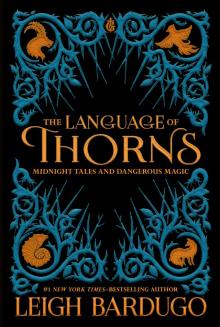 The Language of Thorns: Midnight Tales and Dangerous Magic
The Language of Thorns: Midnight Tales and Dangerous Magic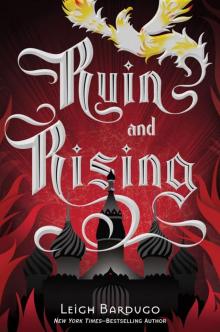 Ruin and Rising
Ruin and Rising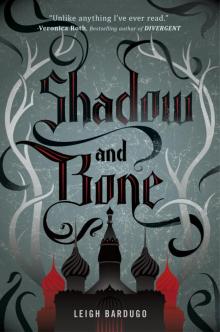 Shadow and Bone
Shadow and Bone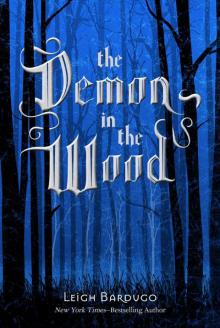 The Demon in the Wood
The Demon in the Wood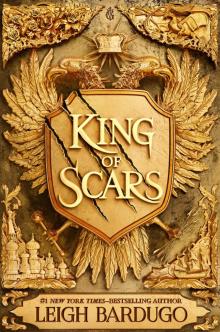 King of Scars
King of Scars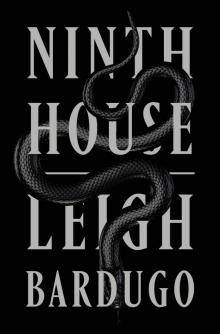 Ninth House
Ninth House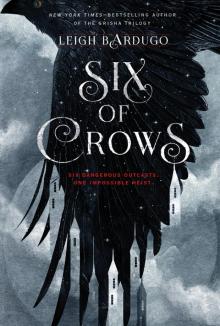 Six of Crows
Six of Crows The Tailor
The Tailor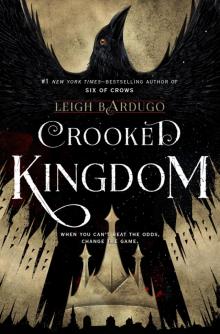 Crooked Kingdom
Crooked Kingdom The Too-Clever Fox
The Too-Clever Fox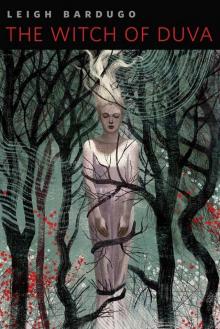 The Witch of Duva
The Witch of Duva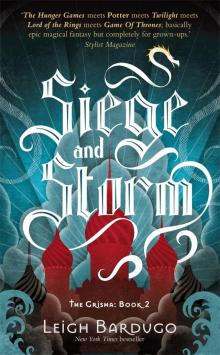 Siege and Storm
Siege and Storm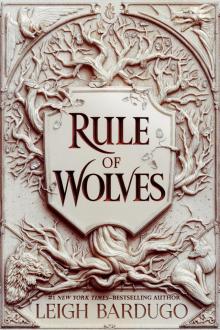 Rule of Wolves
Rule of Wolves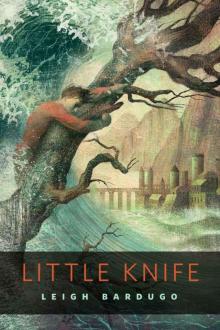 Little Knife
Little Knife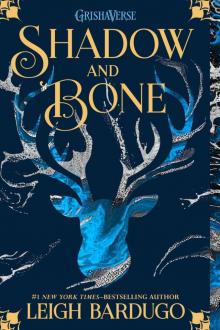 Grishaverse 01 - Shadow and Bone
Grishaverse 01 - Shadow and Bone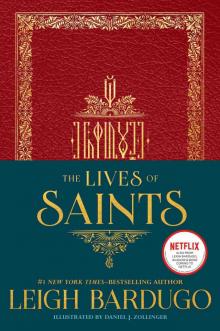 The Lives of Saints
The Lives of Saints Grishaverse 01.5 - The Tailor
Grishaverse 01.5 - The Tailor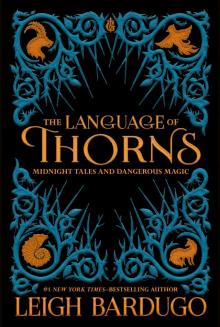 Grishaverse 0.5 - The Language of Thorns
Grishaverse 0.5 - The Language of Thorns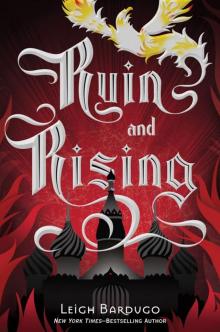 Ruin and Rising (The Grisha Trilogy)
Ruin and Rising (The Grisha Trilogy)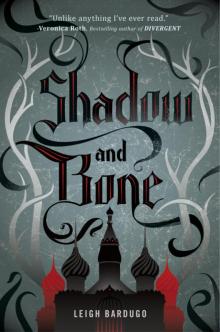 Shadow and Bone gt-1
Shadow and Bone gt-1 Wonder Woman: Warbringer
Wonder Woman: Warbringer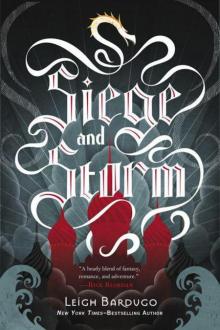 Grisha 02 - Siege and Storm
Grisha 02 - Siege and Storm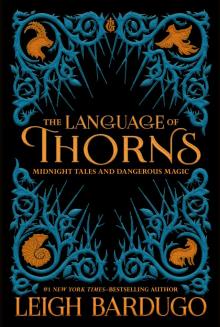 The Language of Thorns
The Language of Thorns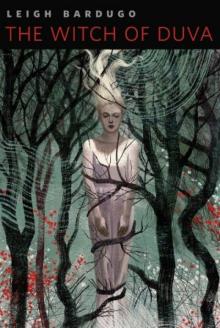 Grisha 00: The Witch of Duva
Grisha 00: The Witch of Duva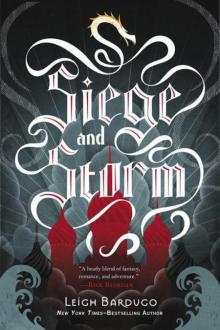 Siege and Storm gt-2
Siege and Storm gt-2 Shadow and Bone (Grisha Trilogy)
Shadow and Bone (Grisha Trilogy)